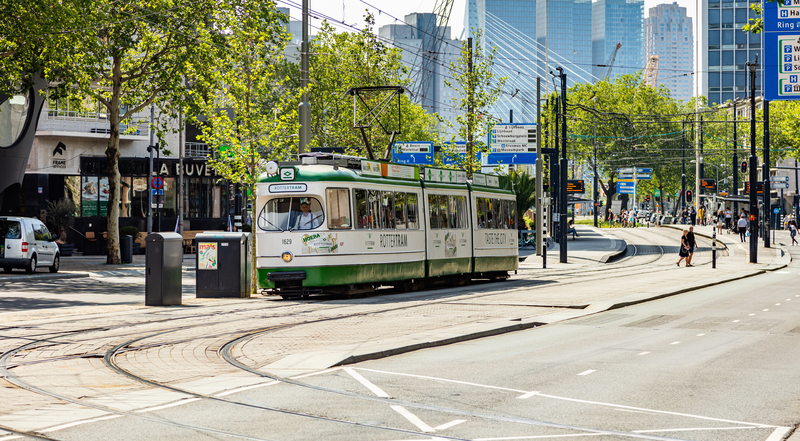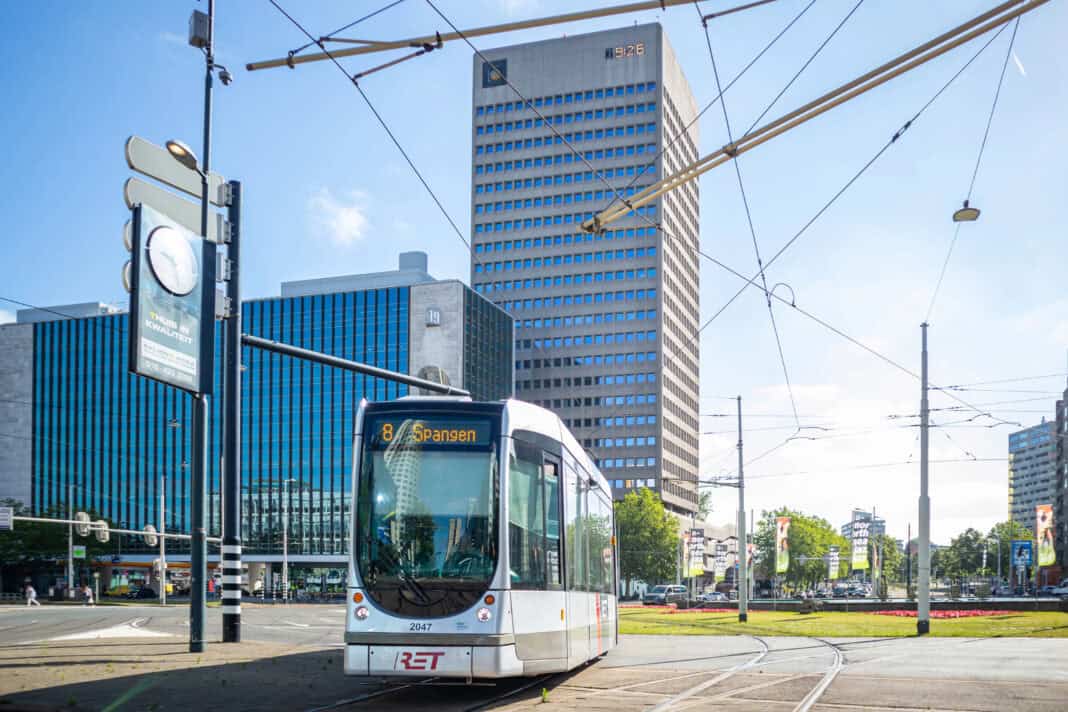Rotterdam is leading the way in sustainable energy solutions, with its public transport company (RET) being the first in Europe to use its surplus electricity to alleviate the city’s overloaded power grid.
According to AD, RET’s public transport network generates an impressive 90,000 megawatt hours (MWh) of electricity annually.
To put this into perspective, that’s enough energy to supply approximately 36,000 households in Rotterdam.
Power to the people (and cars)
As RET director Linda Boot says, “There is much more power available than our trams and metros need.”
READ MORE | Renewable energy in the Netherlands: everything you need to know
Initial plans involve Rotterdam purchasing 2,000 megawatt hours from RET. This energy will be used for two new charging plazas, capable of supporting an estimated 30,000 charging sessions per year.
The concept was developed five years ago by RET technician Leo Vliegenthart during the construction of Feyenoord City.

Boot observed that the public transport network’s power system is only fully utilised when vehicles are running, leaving much of the potential energy untapped during slower periods.
Expanding the project
Alderman Chantal Zeegers highlighted the pressing need to relieve the region’s overloaded power grid.
Encouraged by the success in Rotterdam, Boot hopes to expand the project to other Dutch cities like the Hague, Amsterdam, and Arnhem.
“The implementation is simple,” she says. “All that is needed is a dedicated power grid and a permit to supply electricity.”
Dig what you’re reading? Get more of it! Join our WhatsApp channel or Instagram broadcast to get the latest news straight to your pocket. ⚡️



Fantastic news and many thanks to those talented politicians
What a great idea!